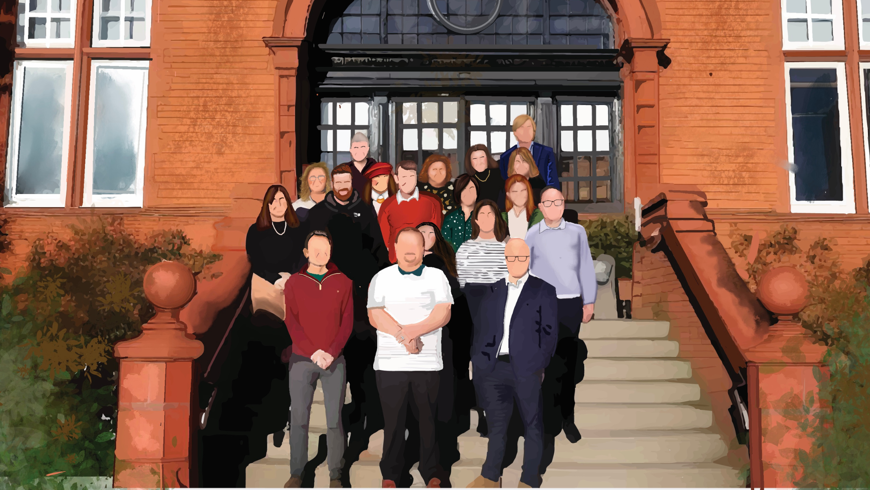
Leadership Programme
Friday 26th April 2024 was the date for the much-awaited End of Leadership Course pitches to Fran Thompson, CIO and members of the Senior Management Team (SMT). It was time to showcase the culmination of the participant’s hard work, dedication, and learning. The Pitches were a testament to growth, development, and readiness to tackle challenges head-on.
The Pitches were wide and varied and included:
- A national pilot scheme to allow eHealth staff to donate blood and “Save A Life” during working hours. Canice Walsh outlined the need for blood donations, citing 1 in 4 people will require a blood transfusion at some point in their lives. This equates to approximately 200 people receiving transfusions on any given day. With only 3% of the eligible population donating blood there is a significant need to drive donations.
- eHealth Support Teams Service. Misel Suler proposed further developments of eHealth Connect platform. Misel suggested developing a means of identifying each team in eHealth and profiling key team functions. Therefore, creating a one stop location for information on all services and resources available in eHealth.
- Let's Work Together - new ways of working requires new thinking and support at organisational level. Norman Noonan defined some of the challenges faced by eHealth and advocated for a fresh approach to facilitating meetings. Norman proposed introducing an Agile approach to team meetings. Thus moving from 45 minute meetings to 15 minute more engaging meetings.
- “Build it, and will they come? eHealth Literacy”. Niamh Murphy suggested an eHealth project checklist for Health literacy. This would include, accessibility checklist and a mandate for using “Plain English”. Niamh quoted a number of identified literacy problems including a WHO/M-POHL study 2021 noting 1 in 4 Irish adults as having limited health literacy. Thus driving the need for an intervention of this genre.
- “Self-reflection for success”. Deirdre Hogan proposed the introduction of the practice of self-reflection for development. Deirdre outlined the benefits of self-reflection including growth in professional development, productivity, well-being and inter-personal dynamics.
- Increase ICT Project Success. Mindy Lee argued for embedding organisation change management and change agents in all eHealth project to ensure their success. Mindy described tools and templates available to support successful change management projects. Mindy cited research that correlated effective change management with project success.
- Hospital Wayfinding – A National Strategy for delivering high quality care to hospital users. Alastair MacNair portrayed his experience of working on site in an acute hospital and encountering the challenges faced by hospital users in ‘finding their way’. Alastair argued for the need for a National Hospital Wayfinding Strategy. Alastair quoted research from the NHS suggesting that 6.9 million outpatient appointments were missed each year due to navigation problems. While a DOH report noted that all junior doctors reported getting lost on the way to urgent crash calls.
- Improving the patient experience- Right Test First Time. Eimear Duggan described how waiting lists for Radiology could be eliminated by integrating a Clinical Decision Support (CSD) software across the Radiology referral system at point of care. Eimear quoted studies noting that between 20%-50% of Radiological examination could be inappropriate or unnecessary. The use of CSD could support healthcare professionals to make the best, safest and most appropriate exam choices.
- Vendor 360 Degree Service Review. Celina O’Connor proposed a standardised approach to Vendor service reviews. This could promote greater collaboration and co-ordination between eHealth teams. A 360 service review could increase transparency of vendor performance across all of eHealth. Thus ultimately, leading to greater value for money and cost control measures.
- SharePoint standardisation in eHealth. Dermot Gorman argued for a SharePoint template. A template would lead to a consistent and an all-round greater user experience. Dermot also outlined the growth in the use of SharePoint thus amplifying the need for additional support for end users.
- Critical Care Post Discharge Digital Toolkit. Klaire Trench Morris presented on the need for a critical care post discharge digital toolkit to support patients. Klaire presented overwhelming evidence to support the initiative citing amongst others the Irish National ICU Audit and a Science Direct article. Klaire also noted that supporting patients post discharge could reduce the chances of rehospitalisation.
- eHealth Integration Approach Guide. Orla Fox advocated for the development of an integrated systems approach Guide. An integrate Guide would assist programs to compliment the digital roadmap. The Guide would force questions on integration as part of project design thus reinforcing future planning.
- “Time Out” – Signpost for healthy mind and body. Cheryl Breen presented on a toolkit and signpost for managers to support staff in maintaining a healthy mind and body. Cheryl outlined how in the new post pandemic working environment of remote\hybrid working, there is a growing culture of employees working longer hours, having back to back meeting without breaks and sitting for long periods. The culmination of which is leading to a more sedentary working environment.
- GenAI Get Ready. David Gaughran call to action was to be prepared and upskill with GenAI “copilots”. David cited Public Sector backing readiness including Public Service Agreement 2024-2026 and HSE Digital Health Strategy 2024-2030 (draft). “Fail to prepare – prepare to fail”.
- From RAGs to Knowledge Richness, an AI Opportunity. Barry Crosson outlined the benefit of using Generative AI to expedite extraction of Information and Knowledge from custom data sources. Barry described how Generative AI could enable tasks such as advanced question-answering systems, content creation and summarisation together with conversational agents and Chabot’s.
A thanks to all the remarkable participants for their time, effort and determination to this programme.
A thanks also to the SMT for their continued support to the Leadership Programme.
Visual Interpretation of the pitches:





